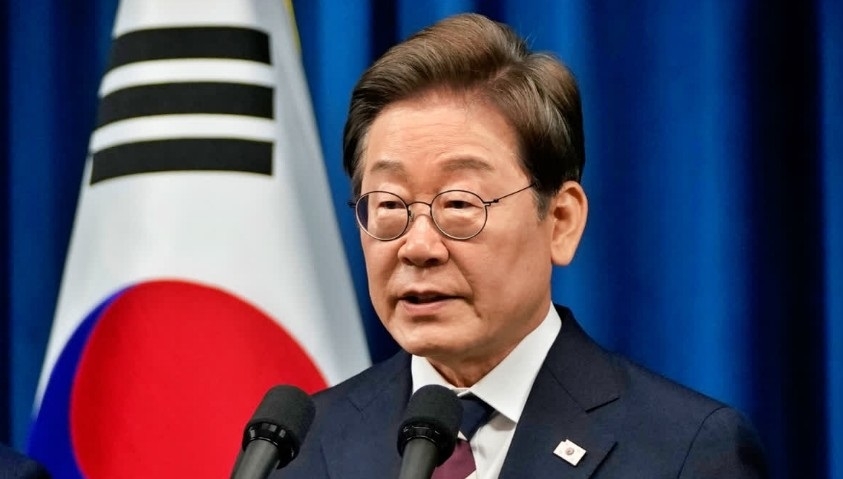From Child Labourer To President of South Korea, The Inspiring True Story of Lee Jae-myung

That's Lee Jae-myung for you.
Childhood of Extreme Poverty
Born in 1963 in a mountain village in Andong, Lee was
the fifth of seven children in a family where the biggest luxury was owning
shoes that fit. His dad cleaned markets. His mum collected fees at public
toilets. Their life was borderline Dickensian. At an age when most teenagers
worry about acne, Lee was manning machines in Seoul's industrial outskirts:
jewellery plants, refrigerator lines, and the fateful baseball glove factory
mentioned above, where an accident left his left arm permanently damaged.
Yet, this wasn’t the end. Lee didn’t just survive, he
made a spectacular comeback that involved studying for high school exams after
factory shifts and eventually getting into Chung-Ang University to study law.
By 1986, he’d passed the bar. Lee married Kim Hye-kyung in 1992, had two
children, and went on to spend nearly two decades as a human rights lawyer. He
fought for the underdogs, people who like his younger self didn’t have a voice.
In an age of sleek, poll-tested politicians, Lee was a bit of an anomaly.
Political Stint
He entered politics in 2005 with the Uri Party, where
his first few campaigns flopped. He lost Seongnam’s mayoral race in 2006 and a
parliamentary bid in 2008. But Lee doesn’t seem like the kind of guy who gives
up easily. In fact, it’s almost like he collects rejection slips like stickers.
His first proper breakthrough came as Mayor of Seongnam, a gritty satellite
city near Seoul. He won in 2010, again in 2014, and didn’t waste time doing
ribbon-cuttings or photo ops. Instead, he got down to the kind of policies that
make citizens cheer: school uniforms for all, welfare reforms, and the closure
of the country’s largest dog meat market. That’s 80,000 dogs a year, off the
menu.
South Korea President Lee
Lee spent his teens working in a factory that makes baseball gloves (Getty Images)
In 2016, he famously went on a hunger strike to protest
Seoul’s budget cuts to regional governments. Not exactly a crowd-pleasing move
for a politician but then again, Lee’s always played a different game. Later
that year, when he delivered a fiery street speech against then-President Park
Geun-hye, calling for her to be “seized and consigned to history,” his
political persona was sealed. He was the anti-hero who made everyone listen.
All Guns Blazing
As Governor of Gyeonggi Province from 2018 to 2021, he clashed with the central government over universal COVID relief, pushing his way into national headlines. He didn’t always make friends in high places, but he certainly made his presence felt. His first presidential run came in 2017, where he lost to Moon Jae-in.
Undeterred, he ran again in 2022 with the Democratic Party, this time campaigning on universal basic income, social reforms, and a little class war. He lost by 0.73% (the narrowest margin in South Korean history). Instead of retreating, Lee doubled down. As leader of the opposition, he became a thorn in the government’s side. He even attempted an impeachment bid against key officials in President Yoon Suk-yeol’s cabinet. Then, in 2024, the story took a darker turn; Lee was stabbed in the neck during a public appearance. A man had asked for his autograph, and instead pulled out a knife. Lee survived after a dramatic two-hour surgery on his jugular vein.
If you're still trying to process that, so is South Korea. Because in many ways, Lee Jae-myung is a mirror. He reflects a nation still divided along class lines, still reckoning with rapid modernization, and still unsure whether it wants its leaders polished or passionate.
As Lee himself once said, “Poverty is not a sin, but I was always particularly sensitive to the injustices I experienced because of poverty.”
That line alone tells you everything. He hasn’t forgotten where he came from. Lee officially began his term as the nation's 21st head of state on June 4, 2025. He was sworn at Rotunda Hall of the National Assembly in Seoul's Yeongdeungpo-gu District. In a speech to the nation, the President said, "Reflecting the spirit of unity regardless of whom one supported in this election, I will be 'everyone's president' who embraces and serves all the people."